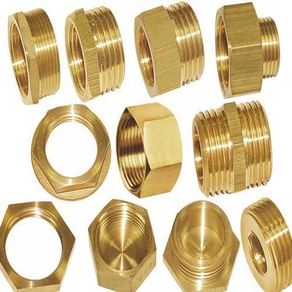
Pipe fittings are crucial parts of plumbing systems that link, regulate, and reroute fluid flow. Pipe fittings are often thought of in relation to domestic plumbing, but they are also quite important in industrial settings. This blog will discuss the many uses of pipe fittings in both home and commercial settings, as well as their adaptability.
Understanding Pipe Fittings
Before delving into their applications, let’s understand what pipe fittings are and their various types:
- Definition: Pipe fittings are components used to connect sections of pipe or tubing, change the direction of flow, regulate fluid flow, or adapt to different pipe sizes or shapes.
- Types: There are numerous types of pipe fittings, each serving a specific purpose. Elbows, tees, couplings, unions, reducers, and valves are examples of common types. Depending on the use and surroundings, these fittings are available in a variety of materials, including brass, plastic, and metal.
- Connection Methods: Pipe fittings can be connected using different methods, including threaded connections, soldering, welding, compression fittings, and push-to-connect fittings. The choice of connection method depends on factors such as material compatibility, pressure requirements, and ease of installation.
Residential Applications of Pipe Fittings
In residential settings, pipe fittings are used extensively in plumbing systems for various applications:
- Water Supply: Pipe fittings are used to connect water supply lines, redirect water flow, and regulate water pressure in residential plumbing systems. Common fittings include couplings, elbows, tees, and valves, which allow for efficient distribution of water throughout the home.
- Drainage and Waste: In residential buildings, waste disposal and drainage systems require pipe connections. Fittings such as P-traps, elbows, and connectors are used to connect fixtures such as sinks, toilets, and showers to the main sewage line, ensuring proper drainage and sanitation.
- Heating and Ventilation: Pipe fittings play a role in heating and ventilation systems within residential properties. They facilitate the distribution of warm or cooled air throughout the house by joining radiators, boilers, and HVAC ducts.
- Gas Supply: In homes with gas appliances, pipe fittings are used to connect gas supply lines to stoves, water heaters, and furnaces. These fittings must be properly installed and sealed to prevent gas leaks and ensure safety.
Industrial Applications of Pipe Fittings
Pipe fittings are equally important in industrial settings, where they serve a wide range of applications:
- Process Piping: In industrial facilities such as manufacturing plants, refineries, and chemical processing plants, pipe fittings are used in process piping systems to transport fluids and gases between different equipment and components. Fittings must be selected based on the specific requirements of the application, including temperature, pressure, and chemical compatibility.
- Hydraulic Systems: Pipe fittings play a crucial role in hydraulic systems, where they connect hydraulic lines, control valves, cylinders, and other components. Hydraulic fittings are designed to withstand high pressures and ensure leak-free operation, making them essential for maintaining system performance and safety.
- Instrumentation and Control: In industries such as oil and gas, petrochemicals, and pharmaceuticals, pipe fittings are used in instrumentation and control systems to connect sensors, gauges, and control valves. These fittings allow for precise measurement and control of process parameters such as pressure, temperature, and flow rate.
- Structural Support: Pipe fittings are also used for structural support in industrial facilities, such as supporting overhead piping, constructing pipe racks, and securing equipment and machinery. Fittings such as clamps, hangers, and supports provide stability and ensure the integrity of piping systems.
Conclusion:
Pipe fittings are versatile components that find applications in both residential and industrial settings. From plumbing systems in homes to process piping in industrial facilities, pipe fittings play a crucial role in ensuring the efficient and safe transport of fluids and gases. By understanding their different types, connection methods, and applications, homeowners and industry professionals can utilize pipe fittings effectively to meet their specific needs and requirements.